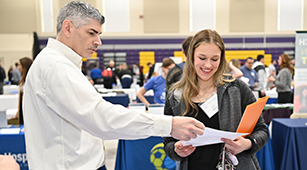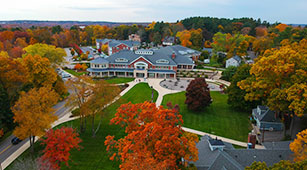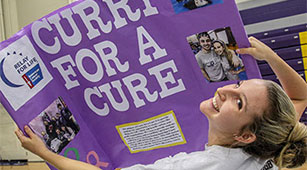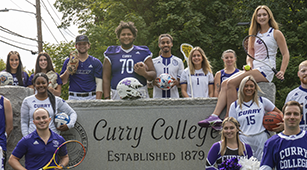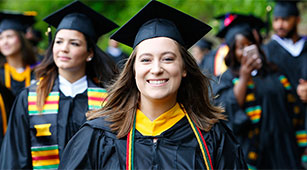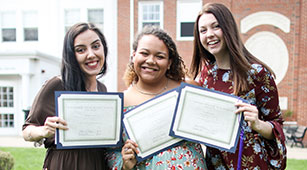Schedule an appointment to meet with the Center for Global and Career Services about your area of interest.
Make an Appointment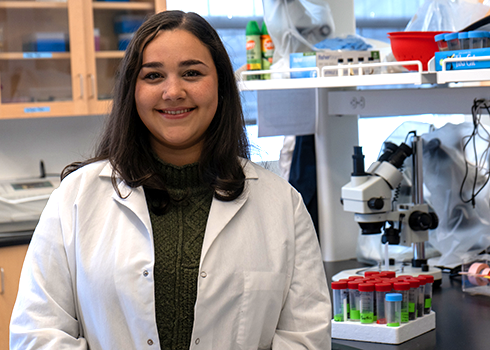
Meet Hailey Gonsalves '23
Hailey Gonsalves ’23 has a dream – to one day work in a crime lab. Specifically, she wants to test the biological trace evidence - the materials commonly collected from crime scenes - to help catch the perpetrators. So, when she was applying to college, she found that Curry College would be just the right fit for her career aspirations.
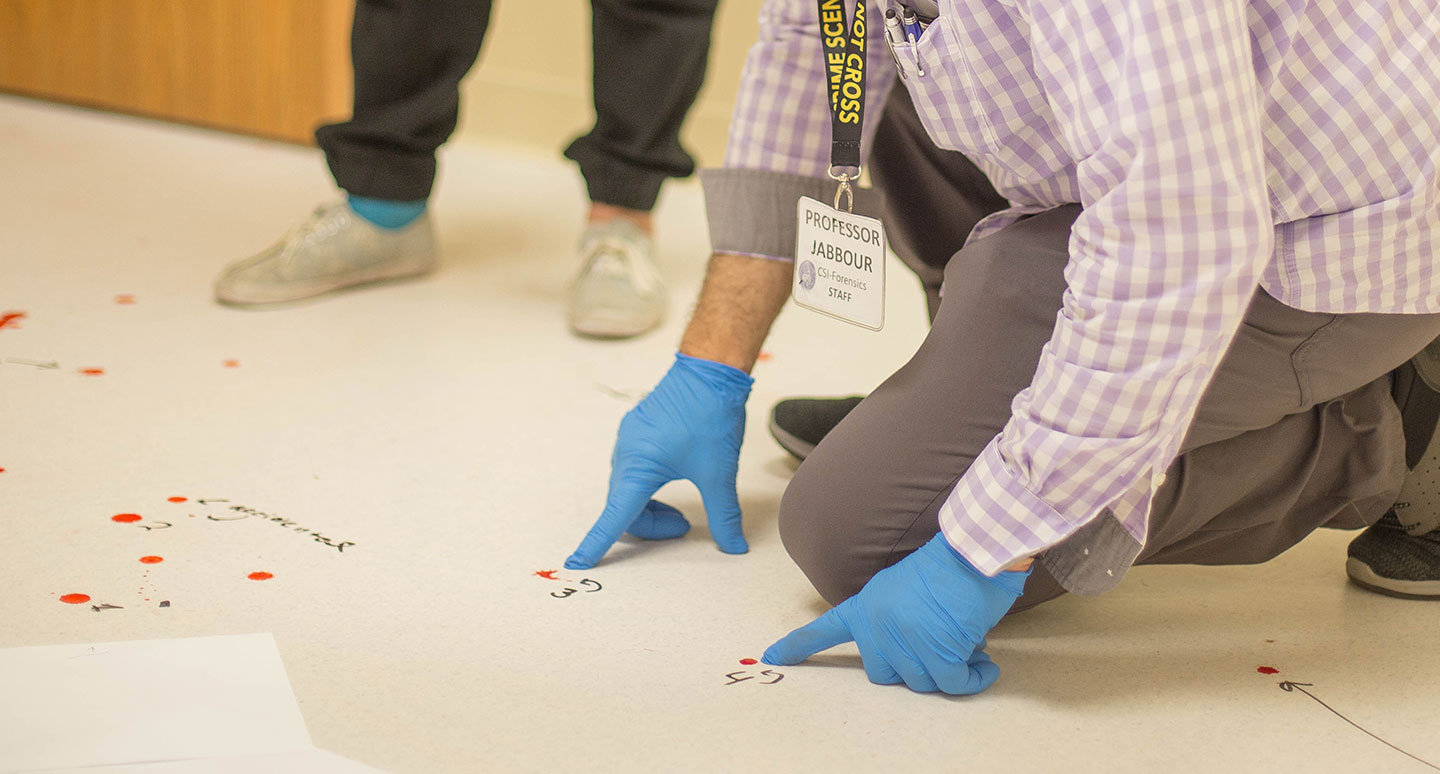
State-of-the-Art Training Center
Students in the forensic science program develop a wealth of hands-on practical experience available to them in our state-of-the art labs and training center.
Learn More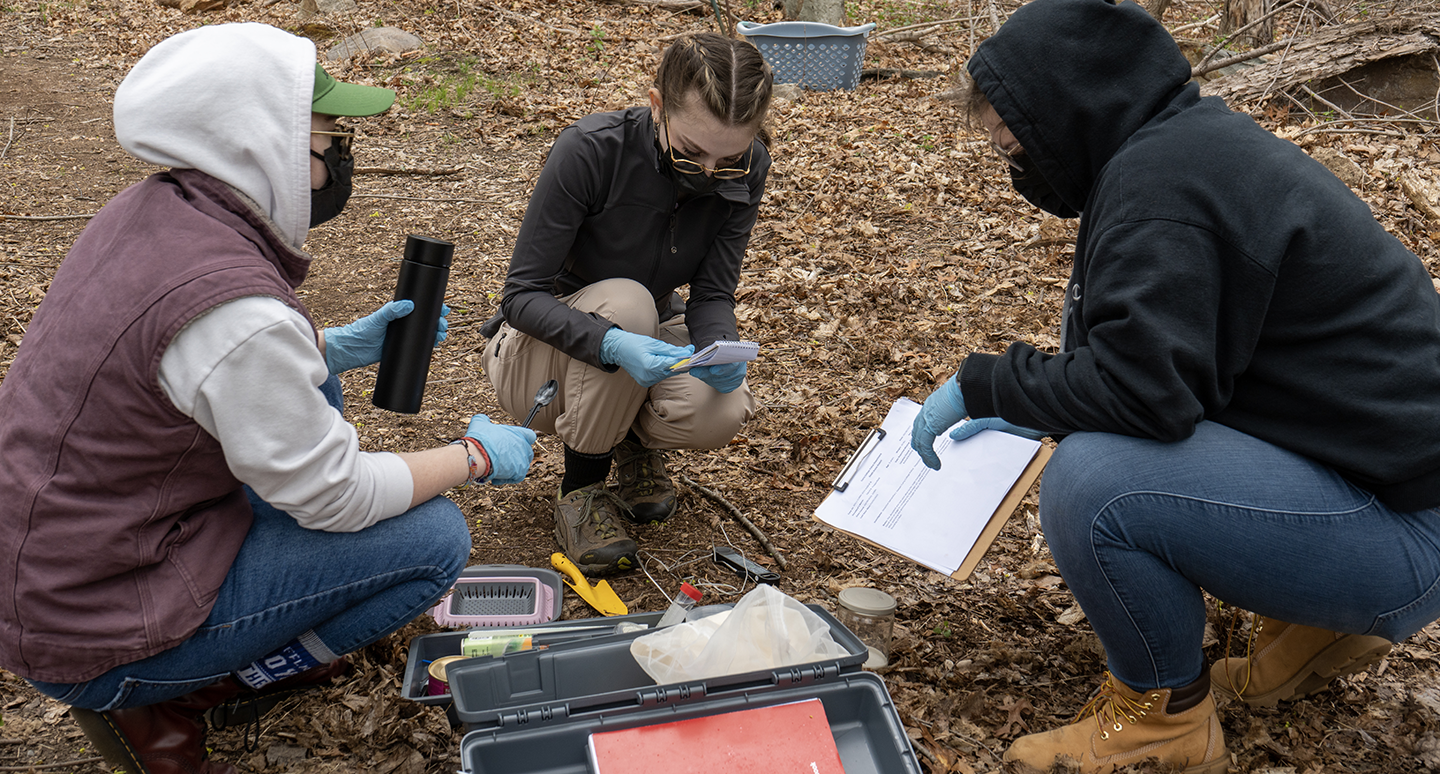
Home Field Advantage
As far as professional research experience goes, Curry Science students needn’t look any further than our own backyard. For the past several years, a variety of faculty-led science research projects have taken place on the rich grounds of our Milton Campus, giving students hands-on experience and publishing opportunities that are unique to our College. And in hypercompetitive fields, our students are getting a leg up on the competition.
Learn More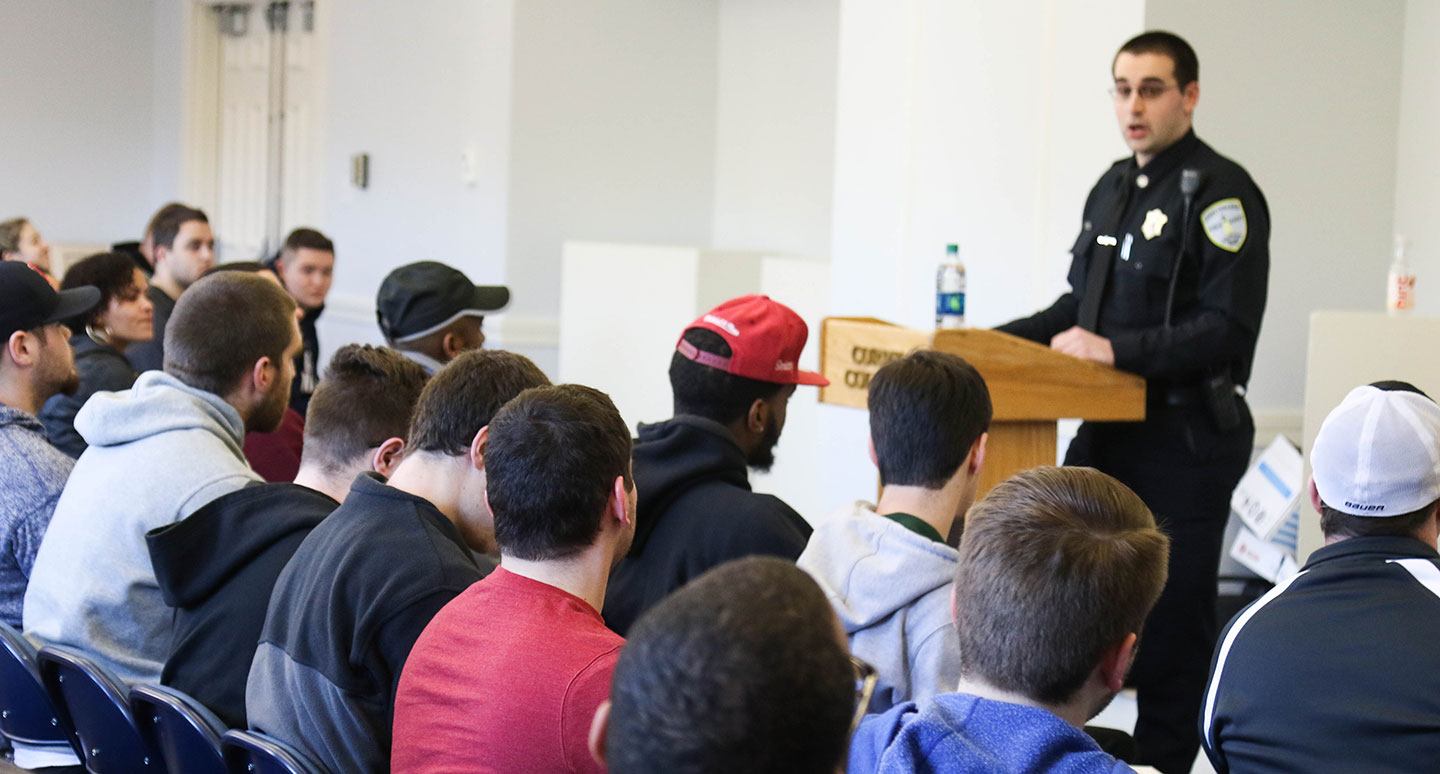
Criminology and Criminal Justice Major/Minor
Do you love the law? Want to make a difference by standing up for those who need a voice? Then a Criminology and Criminal Justice major or minor may be for you.
Explore Criminology and Criminal Justice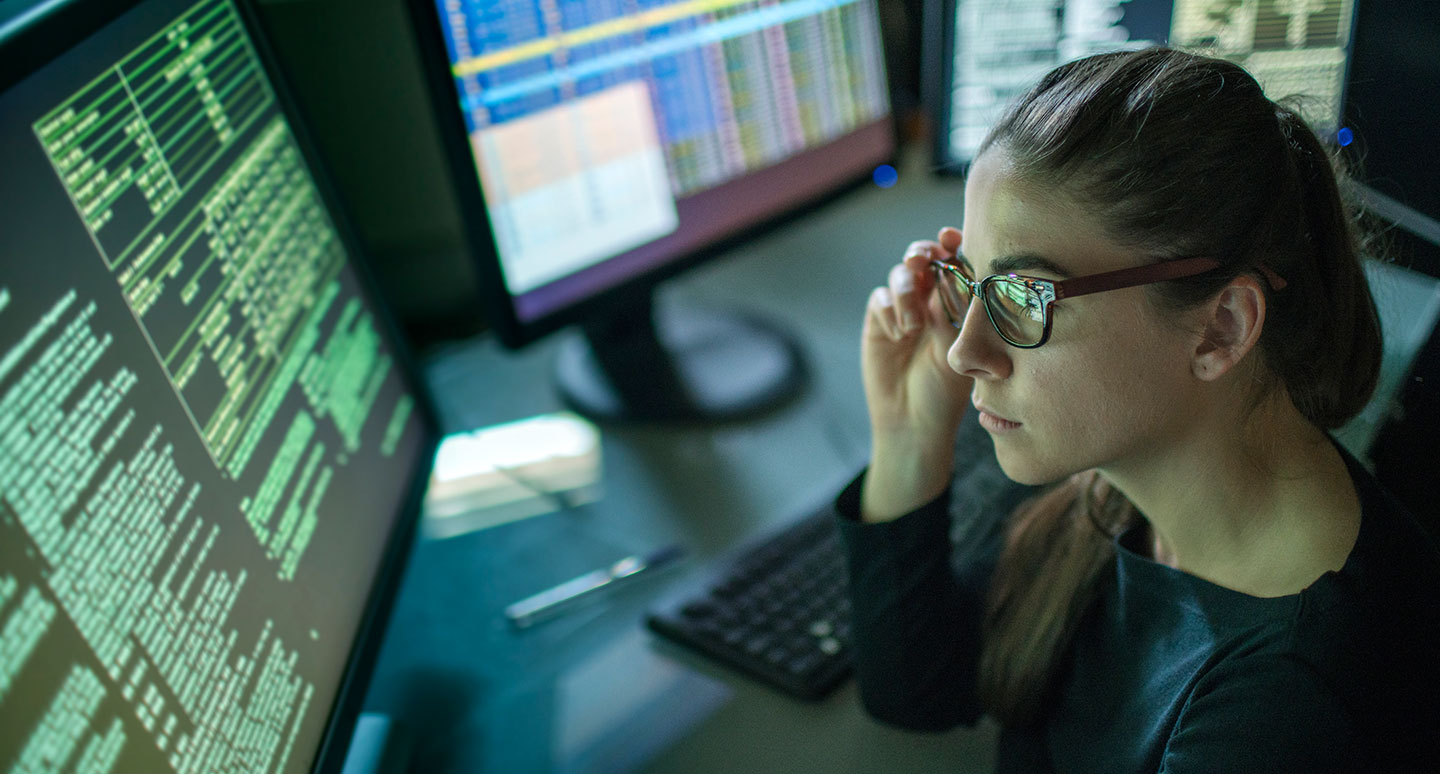
Cybercrime Minor
A minor in cybercrime will expose students to the world of crime involving computers, the internet and related modern technologies preparing them for professions in legal investigation, law enforcement and data analysis.
Explore Cybercrime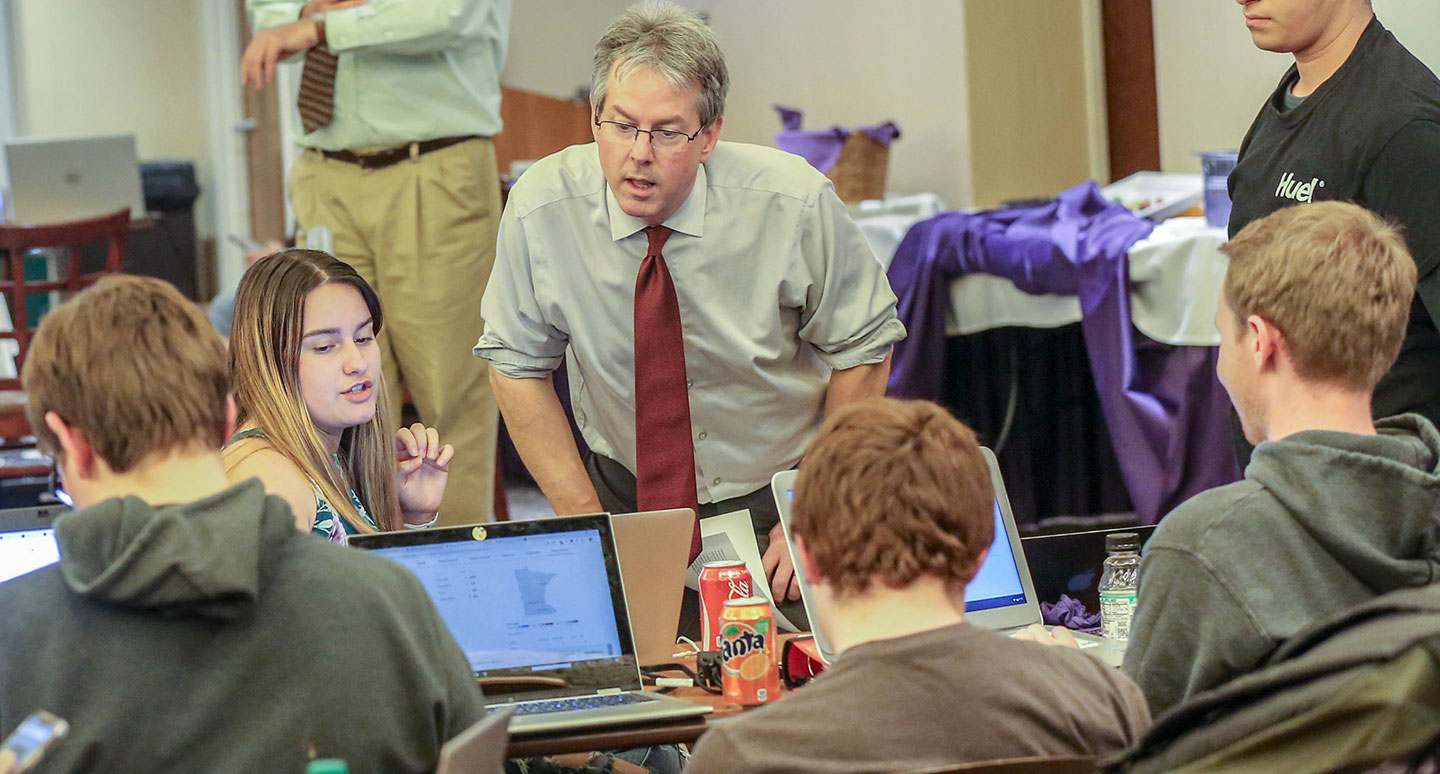
Law and Society Minor
Students pursuing a minor in Law and Society will study how laws are created and how they in turn shape social movement around various interests, exploring the intersections between law, power, and society. Students with a Law and Society minor will be prepared for careers in advocacy, legal research, and paralegal studies.
Explore Law and Society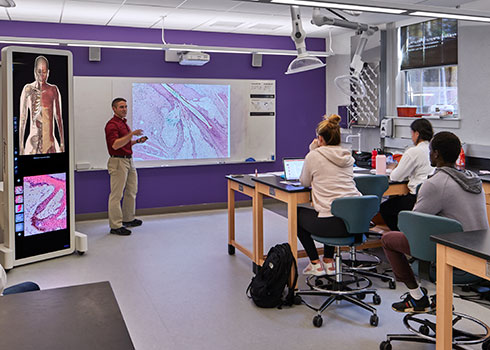
The Learning Commons
The Learning Commons and Science and Research Center was designed to support the success of every student at Curry. It provides a space and tools that facilitate the College’s approach to teaching and learning, mentoring and empowering students to help them achieve their ambitions. This powerful new feature of the Curry campus is an embodiment of the College’s mission and strategic vision for the future.
Explore Related Programs:
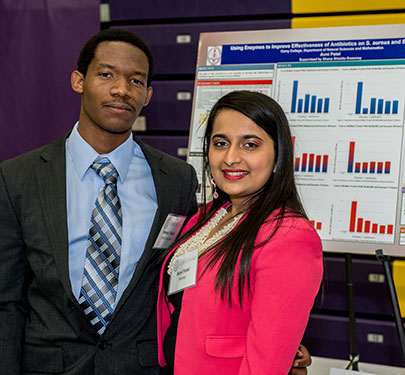
Undergraduate Research
Students participating in Science-related majors at Curry conduct research in collaboration with members of the Science faculty. Students present their research at department capstone events as well as the College’s Academic Forum.
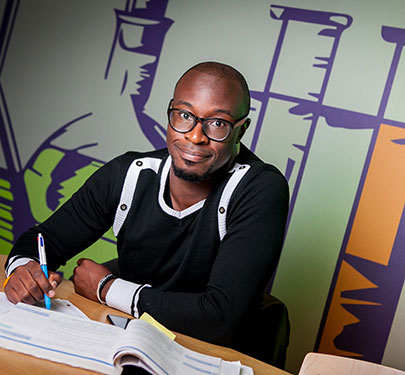
Pre-Health Professions
If you are considering pursuing a career as a physician, dentist, veterinarian, physician assistant, or other medical careers requiring an advanced degree, you should consider Curry's Pre-Health Profession Studies Program.
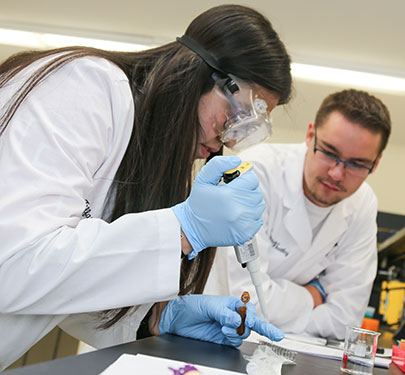
Exploratory Health Professions
The Exploratory Health Professions Program is designed to help students interested in health services fields identify and pursue a major that will lead to internships and employment in the health care industry.
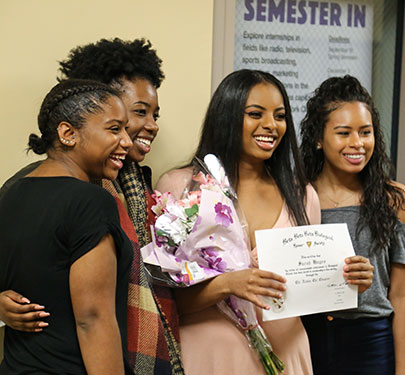
Biology Honor Society
Tri-Beta is a society for students dedicated to improving the understanding and appreciation of biological study and extending the boundaries of human knowledge through scientific research.
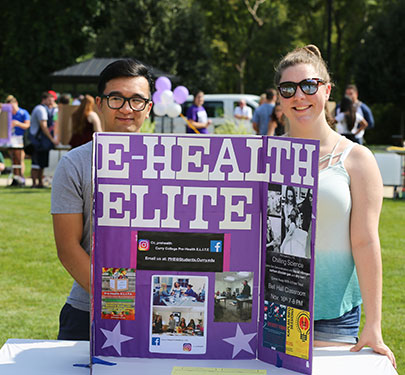
Pre-Health E.L.I.T.E.
Pre-Health E.L.I.T.E. (Enhanced Learning Implemented Through Experience) looks to strengthen the students who are interested in pursuing a career in the medical profession or exploring the field further.
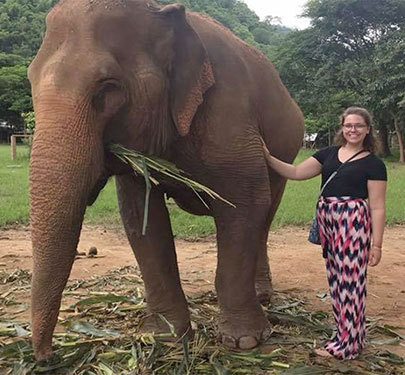
Study Abroad
Along with institutional partnerships, you can create your own Study Abroad opportunity, or go global with our own faculty members as part of our Short-term, Faculty-led Courses.
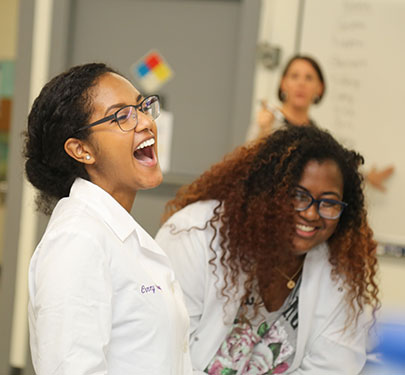
First-Year Experience
Making the transition to college can be a little confusing and lot of fun. Your First-Year Experience at Curry College helps smooth out the bumps and puts you on the path to success.
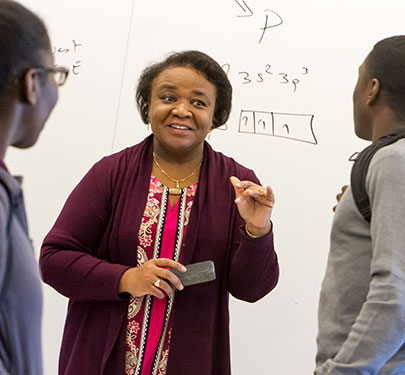
Gen Ed
At the heart of Curry College's undergraduate curriculum is our General Education (Gen Ed) Program. Gen Ed is based on our belief in the power and potential of the liberal arts.
Life-Changing Opportunities Await
Start with a foundation in the liberal arts. Add attentive faculty and countless opportunities to learn by doing. That’s what you’ll get with a bachelor’s degree from Curry. Learn what’s waiting for you today.

